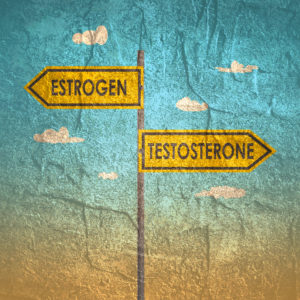Toxins and Health: A few major pillars play a significant role in feeling good when it comes to health. Today we delved into four of these pillars and examined how toxins may be at the root of their dysfunction. From sleep problems to weight gain, low energy, and hormonal dysregulation: a proper detox may indeed be the solution to all your health problems.

This article has been medically reviewed by Dr. Charles Penick, MD
Toxins and Sleep Problems

Quality sleep plays a fundamental role in generating whole-body health. While we sleep, the body undergoes repair, regeneration, and brain functions like information processing, and the consolidation of memories.1 Sleep quality is vital for learning, memory, and ultimately health and longevity, both short and long-term, since every bodily function relies on energy.
Getting quality sleep is also crucial because sleep plays a significant role in brain detoxification. Periods of deep sleep are now being understood to cleanse the brain due to cerebrospinal fluid release (CSF), which may help flush toxic waste out.2
Although many people reach for sleep medication to help them get some rest, such toxins may ironically be the root of the problem. When toxins make their way to the brain, they disrupt the nervous system. This impedes the body’s ability to self-regulate and get into a deep sleep.3
Taking sleeping medication may relieve the problem in the short run, but long term, it will only add to the toxic load and increase one’s inability to rest and function naturally. Even more, natural sleeping supplements like melatonin may create a dependency and downregulate the body’s ability to produce this sleep hormone naturally.4
Before reaching for sedative pills and liquids: address your toxic burden.
Toxins and Weight Management

One of the most studied phenomena of a high toxic load is the connection between toxicity and weight gain. They do so by interrupting our ability to metabolize glucose and cholesterol properly. Over time, this leads to insulin resistance, diabetes, and obesity.5,6
Another way toxins can lead to weight gain is by interfering with hormonal balance. Products found across the shelves of our stores and even in our food supply, including polychlorinated biphenyls (PCBs), polybrominated biphenyls (PBBs), dioxins, plastics like bisphenol A (BPA), plasticizers (phthalates), and pesticides act as hormone disruptors in the body. As a result, our bodies do not function normally, which leads to an array of negative symptoms, including weight gain and weight loss resistance.7
Instead of chronic caloric deprivation and over-exercising, the problem could be toxic overload. When faced with a high toxic load, cutting calories and exercising too much could lead to weight gain. When the body is under high amounts of stress, no diet or exercise plan will solve the toxicity’s underlying root cause.
Toxins and Low Energy

Chronic fatigue is worse than feeling tired; it’s a state where you lack life energy. Nothing excites you… everything feels overwhelming… you fall into stress or anxiety so much more quickly. If this sounds like you, toxins may rob you of your life force.
Although we generally attribute energy to a good night’s sleep, our body’s energy stores’ real hero is called ATP. This cellular energy (or ATP) is the cell’s gasoline, and nothing runs or functions without it.8
Deficiency in ATP has become an epidemic in this country and one of the leading causes of symptoms beyond fatigue and lack of physical energy. Brain fog, digestive problems, and hormone conditions may be rooted in a dysfunctional operation of ATP.
A high toxic load will decimate your body’s ability to produce and use ATP.8 The harmful effect that environmental toxins have on mitochondria cannot be fixed without proper cellular detox. You cannot out-supplement the body’s need for ATP!
Toxins and Hormonal Dysfunction

Hormones are substances that are produced by the endocrine glands. These substances act like the body’s chemical messengers, carrying information and instructions between cells. The endocrine system influences nearly every cell, organ, and function of our bodies, affecting every organ, mood regulation, growth and development, metabolism, and reproduction.9
Toxins interfere with the endocrine system, which increases the risk of infertility, thyroid disease, diabetes, obesity, and cancer.9,10 Our hormonal systems operate like a symphony orchestra, and the signaling between hormones and the body needs to be finely tuned to generate vibrant health.
Over a thousand commonly used chemicals have been identified as hormone disruptors. The reality of living in a modern world is that toxins constantly bombard us throughout the day. Being mindful of these ingredients is essential, but addressing the toxic load of a lifetime (and even generations), requires safely and effectively removing the build-up from the body.
The Bigger Picture

Having explored the impact toxins can have on sleep, weight, energy, and hormonal health, it’s worth noting that dysfunction in any of these categories will snowball and affects virtually every other system in the body.
For example, poor sleep can trigger weight gain, influence hormonal function, and influence energy levels. Weight gain, too, can impact sleep, as well as hormonal function and energy. Having hormonal issues in and of itself can lead to weight gain and sleep issues as well. In other words: everything is connected.
By addressing one primary source of cellular dysfunction that is one of the root causes of so many health concerns, a safe and effective True Cellular Detox may indeed wipe out all your health problems in one go.
Medical Disclaimer: This article is based on the opinions of The Cell Health team. The information on this website is not intended to replace a one-on-one relationship with a qualified healthcare professional and is not intended as medical advice. It is intended to share knowledge and information from the research and experience of the Cell Health team. This article has been medically reviewed by Dr. Charles Penick, MD, for the accuracy of the information provided. Still, we encourage you to make your own healthcare decisions based on your research and in partnership with a qualified healthcare professional.
References
- Walker, Matthew. Why We Sleep. Scribner, 2017.
- Makin, Simon. “Deep Sleep Gives Your Brain a Deep Clean.” Scientific American, Scientific American, 1 Nov. 2019,
www.scientificamerican.com/article/deep-sleep-gives-your-brain-a-deep-clean1/. - Salinas, Sara, et al. “A Hitchhikers Guide to the Nervous System: the Complex Journey of Viruses and Toxins.” Nature Reviews Microbiology, vol. 8, no. 9, 2010, pp. 645–655., doi:10.1038/nrmicro2395.
- Anisimov, Vladimir N. “Effects of Exogenous Melatonin—A Review.” Toxicologic Pathology, vol. 31, no. 6, 2003, pp. 589–603., doi:10.1080/01926230390257885.
- Adhami, Neema, et al. “A Health Threat to Bystanders Living in the Homes of Smokers: How Smoke Toxins Deposited on Surfaces Can Cause Insulin Resistance.” Plos One, vol. 11, no. 3, 2016, doi:10.1371/journal.pone.0149510.
- Ohno-Iwashita, Yoshiko et al. “Cholesterol-binding toxins and anti-cholesterol antibodies as structural probes for cholesterol localization.” Sub-cellular biochemistry vol. 51 (2010): 597-621. doi:10.1007/978-90-481-8622-8_22
- Diamanti-Kandarakis, Evanthia et al. “Endocrine-disrupting chemicals: an Endocrine Society scientific statement.” Endocrine reviews vol. 30,4 (2009): 293-342. doi:10.1210/er.2009-0000
- Zolkipli-Cunningham, Zarazuela, and Marni J Falk. “Clinical effects of chemical exposures on mitochondrial function.” Toxicology vol. 391 (2017): 90-99. doi:10.1016/j.tox.2017.07.009
- Norman, Anthony W., and Helen L. Henry. Hormones. Academic Press, 2015.
- Piazza, Mauri José, and Almir Antônio Urbanetz. “Environmental toxins and the impact of other endocrine-disrupting chemicals in women’s reproductive health.” JBRA assisted reproduction vol. 23,2 154-164. 30 Apr. 2019, doi:10.5935/1518-0557.20190016


